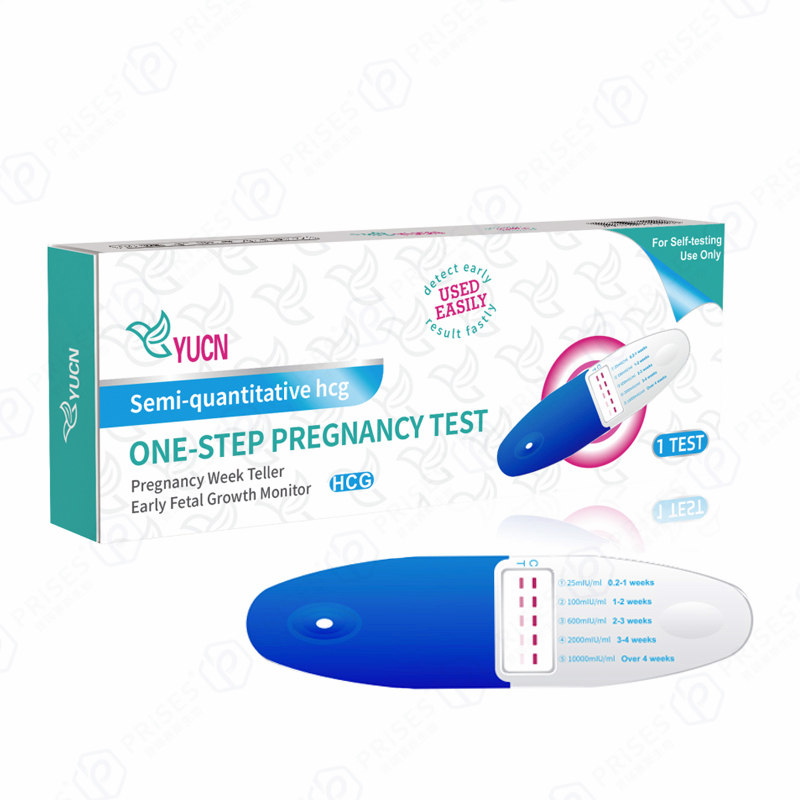דצמ . 31, 2024 21:04 Back to list
Understanding the Basics of Urine Pregnancy Testing and Its Accuracy
Understanding Urine Pregnancy Tests A Comprehensive Guide
Pregnancy tests are crucial tools for women trying to conceive or monitoring their reproductive health. Among the various types of tests available, urine pregnancy tests are the most common and accessible. They provide a quick and reliable way to determine if a woman is pregnant by detecting the hormone human chorionic gonadotropin (hCG) in her urine.
How Urine Pregnancy Tests Work
Urine pregnancy tests function based on the presence of hCG, a hormone produced shortly after a fertilized egg attaches to the lining of the uterus. After implantation, hCG levels begin to rise, doubling approximately every two to three days in early pregnancy. Most home pregnancy tests are designed to detect hCG levels as low as 20 to 25 mIU/mL, making them sensitive enough to confirm a pregnancy within a few days after a missed period.
To perform a urine pregnancy test, a woman starts by collecting her urine in a clean container. Many tests are designed for easy use; they can be done by either urinating directly onto a test stick or dipping a stick into a cup of collected urine. After a short waiting period, usually around 3 to 5 minutes, the test will display the results. Typically, there are one or two lines on the test strip one line indicates a negative result (not pregnant), while two lines indicate a positive result (pregnant).
Timing for Testing
For accurate results, timing is crucial. Most experts recommend waiting until at least the first day of a missed period to take the test, as this allows hCG levels to rise sufficiently for detection. Testing too early may lead to a false negative due to low hCG levels. If a test is taken and the result is negative but menstruation does not occur, it is advisable to wait a few days and retest. For the most accurate results, testing with first morning urine is recommended since it tends to have the highest concentration of hCG.
Accuracy and Reliability
urine pregnancy test

Urine pregnancy tests are generally very accurate when used correctly, with most tests boasting over 99% accuracy in laboratory settings. However, various factors can affect the reliability of results. False negatives can occur if the test is taken too early, if the urine is too diluted, or if the test is performed incorrectly. On the other hand, false positives, while rare, can happen due to certain medical conditions, such as ovarian cysts or recent miscarriages, and could also result from taking specific medications.
Tips for Effective Use
1. Read the Instructions Carefully Each brand may have different instructions, so it is essential to follow them closely for accurate results. 2. Store Tests Properly Ensure tests are stored in a cool, dry place and are not expired. 3. Confirm with a Doctor Regardless of the results from a home test, it is always a good idea to follow up with a healthcare professional for confirmation and next steps, especially if the result is positive.
Emotional Aspects of Pregnancy Testing
Taking a pregnancy test can evoke a wide range of emotions, regardless of the anticipated outcome. For those hoping to conceive, a positive result can bring joy and excitement, while a negative result may lead to disappointment. Conversely, for those not seeking pregnancy, a positive result can bring anxiety or stress. It can be helpful to seek support from loved ones, whether the result is positive or negative.
Conclusion
Urine pregnancy tests are a vital resource for women navigating their reproductive health. They provide a straightforward, accessible, and effective method for determining pregnancy status. Understanding how these tests work, their timing, accuracy, and the emotions surrounding them can empower women to take charge of their reproductive health and make informed decisions. Always remember that while urine pregnancy tests are reliable, consulting with a healthcare provider remains a critical step in addressing any questions or concerns related to pregnancy.
-
Trusted Early Pregnancy Test Kit Supplier | Accurate, Fast Results
NewsAug.26,2025
-
China Sterile Nylon Flocked Throat Swabs: Superior Sample Collection
NewsAug.25,2025
-
COVID-19 Rapid Antigen Test Kit: Accurate & Fast Home Results
NewsAug.24,2025
-
Premium Cassette Lateral Flow Devices for Rapid Diagnostics
NewsAug.23,2025
-
Pregnancy Test Calculator: Know Your Weeks, Week by Week
NewsAug.22,2025
-
Malaria Pf Ag Rapid Test Kit - Quick & Accurate Detection
NewsAug.11,2025

